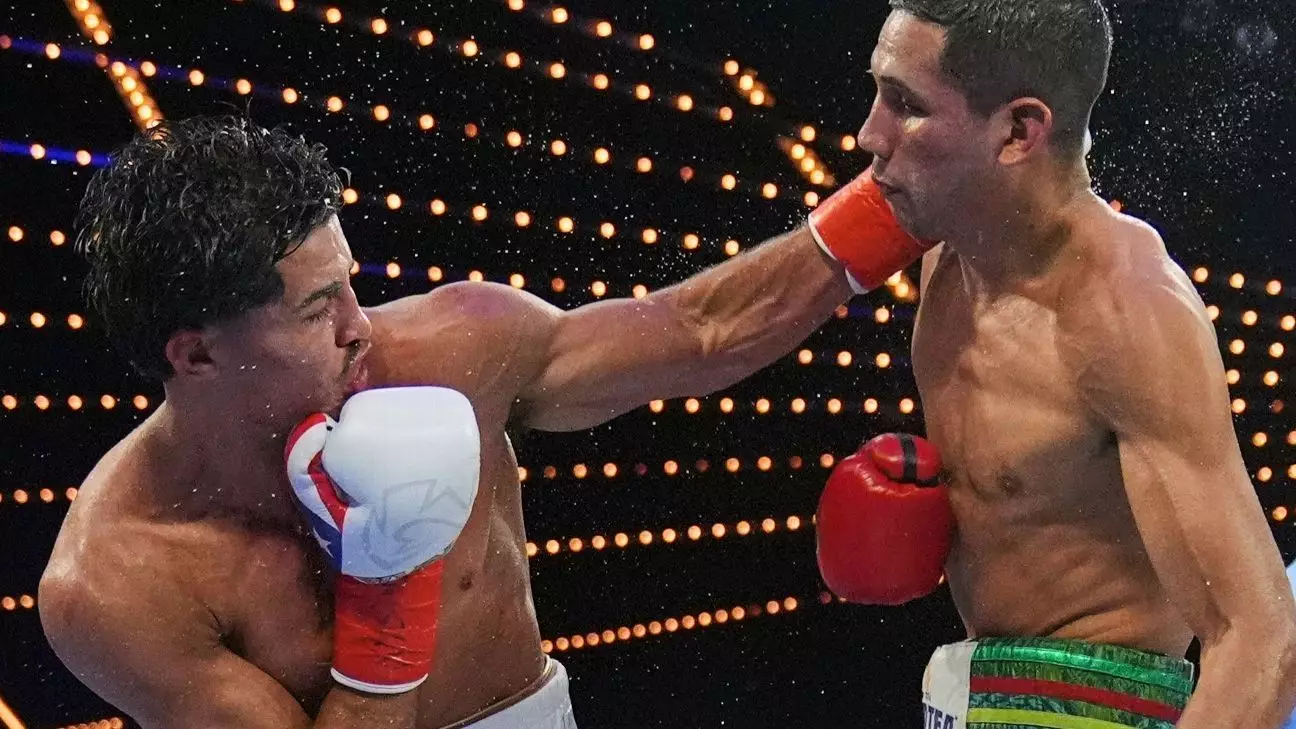Xander Zayas’ recent victory isn’t just another name added to his record; it’s a seismic shift within the sport’s landscape. At only 22 years old, Zayas has boldly carved his place as the youngest reigning world champion in boxing today. His dominant decision win over Jorge Garcia Perez at Madison Square Garden was more than a triumph—it was a statement that youth, talent, and perseverance can challenge the established order. Zayas’ technical mastery, marked by elusive footwork and sharp counterpunching, underscores a deep understanding of the sport that belies his age. That he controls his fights with such confidence at this stage suggests a future that is not only promising but potentially revolutionary for Puerto Rican boxing, especially as he aligns with a progressive move toward developing young talent rather than clinging to outdated boxing hierarchies.
While critics might argue that Zayas’ victory was built on technique rather than raw power, this misses the point. In a sport increasingly dictated by brute strength, his ability to outthink and outmaneuver opponents signifies a shift towards smarter, more strategic combat. His victory amplifies the importance of modernization within boxing—embracing agility and tactical mindsets over just brawn. This perspective aligns with the center-wing liberal view that progress and innovation are vital for the sport’s longevity and relevance.
The Power of Representation and Cultural Pride
Zayas’s rise is emblematic of a broader cultural pride that transcends the ring. His words after victory resonated with a patriotic fervor, reminding us that athletes are not just competitors—they are ambassadors of their communities. For Puerto Rico, a territory with a storied boxing history, his success offers a much-needed sense of hope and identity reinforcement amid ongoing political and social challenges. It underscores a key liberal ideology that champions cultural expression and diversity, emphasizing that representation in sports can serve as a catalyst for social cohesion and empowerment.
However, his journey also reveals the fragility of this progress when faced with commercial pressures and a sport often dominated by conservative interests resistant to change. Zayas’ boldness to speak about national pride in a sport that frequently censors or downplays cultural identity exposes the ongoing tension between mainstream commercialism and authentic cultural celebration. In a way, Zayas embodies a fresh face of the sport that refuses to be silenced or minimized, advocating for a more inclusive and expressive boxing culture.
Challenging the Status Quo
The victories of fighters like Zayas and Carrington highlight a subtle yet powerful shift within boxing—offering hope to fighters outside traditional powerhouses. Carrington’s assured win and his immediate call-out of the belt figure more than just personal ambition; they reflect a broader push for a fairer, more merit-based sport. The underdog stories and rising stars serve as proof that the current establishment’s grip is loosening, creating space for new voices and fresh perspectives.
This evolution, however, often faces resistance from entrenched interests that profit from the status quo—promoters, broadcasters, and even the sport’s traditionalist fans. Yet, the resilience displayed by these young champions suggests a confident rejection of complacency. They symbolize a generational shift that seeks to democratize opportunity and redefine what it means to be a champion in boxing.
In the context of center-wing liberal values, their ascendancy exemplifies the importance of fostering environments where diverse talents can thrive—champions not only of physical strength but of social progress. Their successes challenge the narrative that boxing remains a sport limited to elite powerhouses and reveal that passion, innovation, and cultural pride are now essential ingredients for real greatness. Their stories are more than sport; they are a call for a more inclusive, forward-thinking future that keeps boxing relevant and resonant in a rapidly changing world.


Leave a Reply